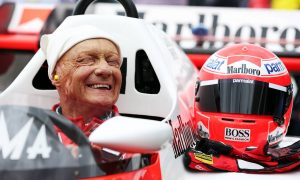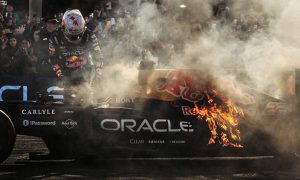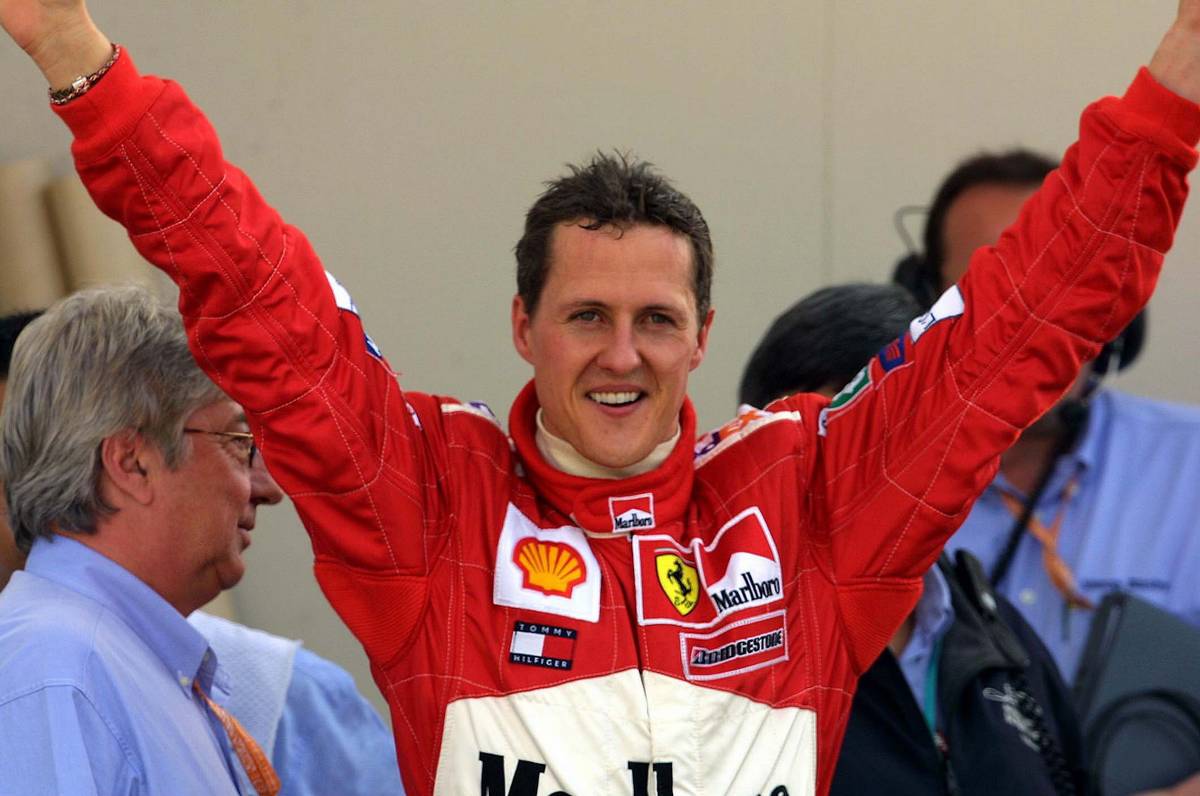
There have been just two Grand Prix races held on October 14 in the past, both of them in the 21st century. They reflected two very different periods in the sport, albeit when both were dominated by two forceful German drivers.
In 2001, Michael Schumacher drove to victory in what was the final race of that season, the Japanese Grand Prix at Suzuka. He was just three seconds ahead of Williams' Juan Pablo Montoya, but the margin didn't disguise the fact that the season as a whole had been a romp for Schumacher.
He finished the 17-race season with nine wins and 123 points, almost exactly double the tally of his nearest challenger David Coulthard who was then driving for McLaren. By this stage of the season he had long since secured his fourth world championship, his second with Ferrari. He would go on to in the title in 2002, 2003 and 2004 making it a run of five consecutive championships.
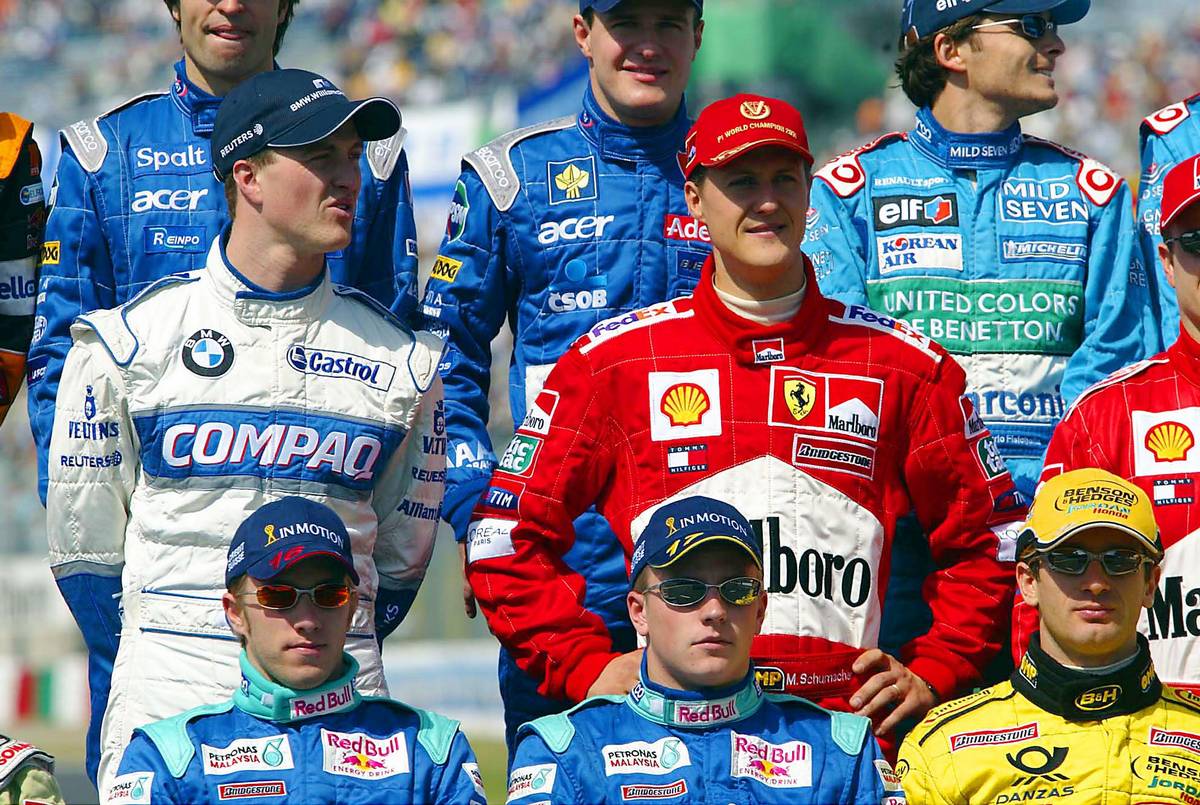
Even as early as 2001, there were rumblings of discontent from the fans at this utter domination of the sport by one man and one team. Would anyone ever be able to topple Schumacher and the Scuderia from the top? "It now seems essential that another driver responds to the challenge to save the sport from its soporific predictability," wrote Ray Matts in the Daily Mail in 2002.
But of course, nothing lasts forever - not even when someone appears utterly unbeatable. Schumacher was only third in the 2005 championship, the year than Fernando Alonso marched to victory with Renault. After coming second again the following year, Schumacher retired from the sport - for a while, at least.
Fast forward to this date in 2012, and Sebastian Vettel was victorious for Red Bull with an eight second gap over his team mate Mark Webber in the Korean Grand Prix. Schumacher, now back with the Mercedes team, was 13th. It was the third in a run of four back-to-back consecutive wins that year for Vettel, which set him up to beat Alonso to the title by a slender three points.
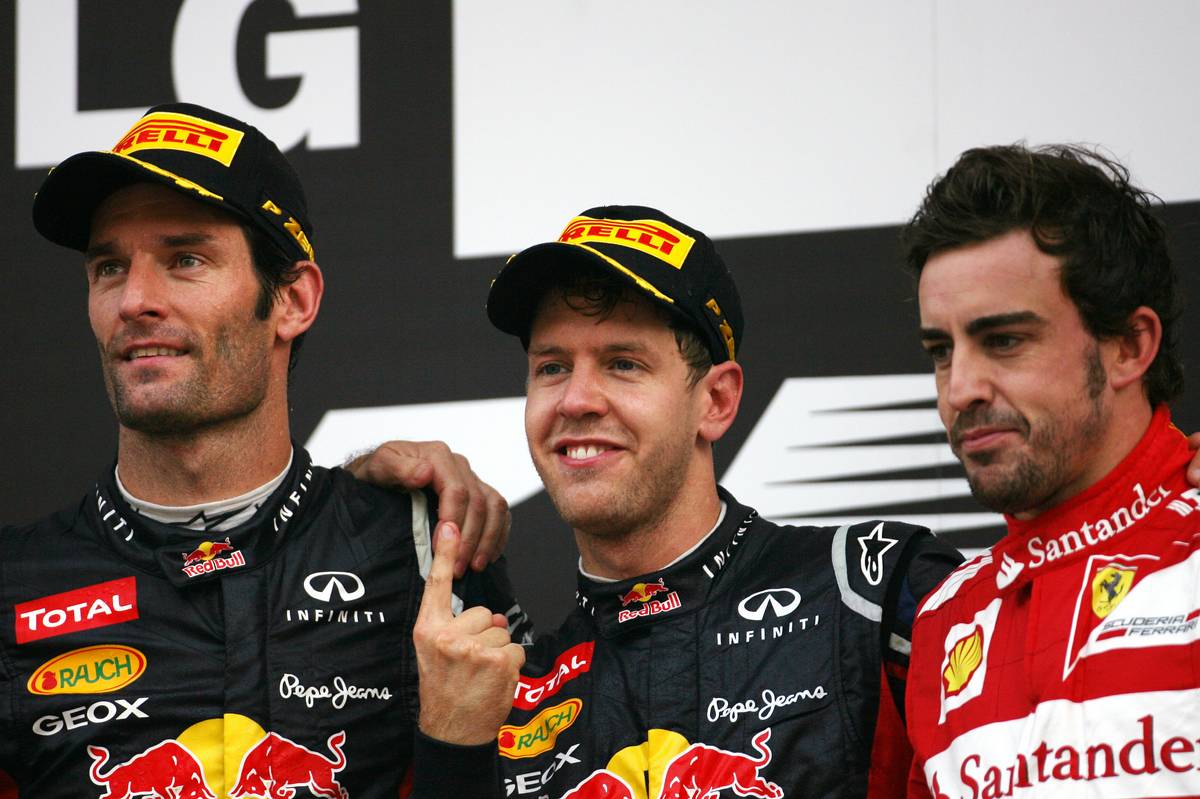
Like Schumacher 11 years before, Vettel was also at the peak of his domination of Formula 1. He'd won his first title in 2010 and his second the following year; his fourth would follow in 2013. Once again, fans were growing restive at the domination of the sport by a single driver, and Vettel's finger wagging celebration provoked particular ire from some sections of the crowd.
But this too shall pass. In 2014 Red Bull abruptly waned and it was the Silver Arrows who shot to the top in their place. Mercedes have stayed at the pinnacle ever since, Lewis Hamilton winning the divers title in 2014, 2015 and 2017. But Hamilton's team mate Nico Rosberg did everything he could to thwart him and in 2016 he achieved his dream of becoming world champion - and promptly retired five days later!
Hamilton has been back on top ever since and the fans have once again been growing increasingly restive at this latest spell of domination. Every time Ferrari has been looking on track to finally dethrone their rivals, the Scuderia's challenge has fallen short in the second half of the season. Will anyone ever get the better of Mercedes?

The lessons from history says that they undoubtedly will. And almost certainly sooner than any of us think. Because if there's anything that you should always expect in Formula 1, it's without doubt the unexpected!
Gallery: The beautiful wives and girlfriends of F1 drivers
Keep up to date with all the F1 news via Facebook and Twitter





